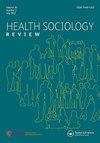收入、财富、经济安全感和健康之间的关系:一项澳大利亚纵向研究
IF 2.5
2区 医学
Q2 HEALTH POLICY & SERVICES
引用次数: 17
摘要
摘要本研究利用澳大利亚家庭、收入和劳动力动态调查的数据,探讨了三个假设:(1)收入和财富都可以预测经济安全感、心理健康和身体健康;(2) 财富比收入更能解释健康结果的梯度;(3)财富比收入更能解释经济安全感。我们进行了固定效应回归分析。在控制了我们模型中的其他变量后,收入和财富似乎与经济安全感和一系列心理健康结果都有积极而显著的关联,但与身体健康无关。也有一些证据支持我们的第二个假设,即健康结果的梯度最好用财富而不是收入来解释,然而这只适用于心理健康。我们的第三个假设没有得到数据的支持。虽然收入和财富都与经济安全感密切相关,但收入比财富更能解释这一点。我们建议,未来的研究旨在评估经济安全作为收入、财富和健康之间关系的中介变量的作用,因为其影响是巨大的。本文章由计算机程序翻译,如有差异,请以英文原文为准。
The association between income, wealth, economic security perception, and health: a longitudinal Australian study
ABSTRACT The study used data from the Household, Income and Labour Dynamics in Australia (HILDA) Survey to explore three hypotheses: (1) that income and wealth both predict economic security perception, mental health, and physical health; (2) that gradients in health outcomes are better explained by wealth than income; and (3) that economic security perception is better explained by wealth than income. We conducted fixed effects regression analysis. After controlling for other variables in our model, both income and wealth appeared to have positive and significant associations with economic security perception and a range of mental health outcomes, but not physical health. There was also some evidence to support our second hypothesis, that gradients in health outcomes are better explained by wealth than income, however only for mental health. Our third hypothesis was not supported by the data. While both income and wealth were strongly related to economic security perception, it was better explained by income than wealth. We recommend that future studies are designed to evaluate the role of economic security as a mediating variable in the relationship between income, wealth and health, because the implications are substantial.
求助全文
通过发布文献求助,成功后即可免费获取论文全文。
去求助
来源期刊

Health Sociology Review
Multiple-
CiteScore
7.50
自引率
0.00%
发文量
14
期刊介绍:
An international, scholarly peer-reviewed journal, Health Sociology Review explores the contribution of sociology and sociological research methods to understanding health and illness; to health policy, promotion and practice; and to equity, social justice, social policy and social work. Health Sociology Review is published in association with The Australian Sociological Association (TASA) under the editorship of Eileen Willis. Health Sociology Review publishes original theoretical and research articles, literature reviews, special issues, symposia, commentaries and book reviews.
 求助内容:
求助内容: 应助结果提醒方式:
应助结果提醒方式:


